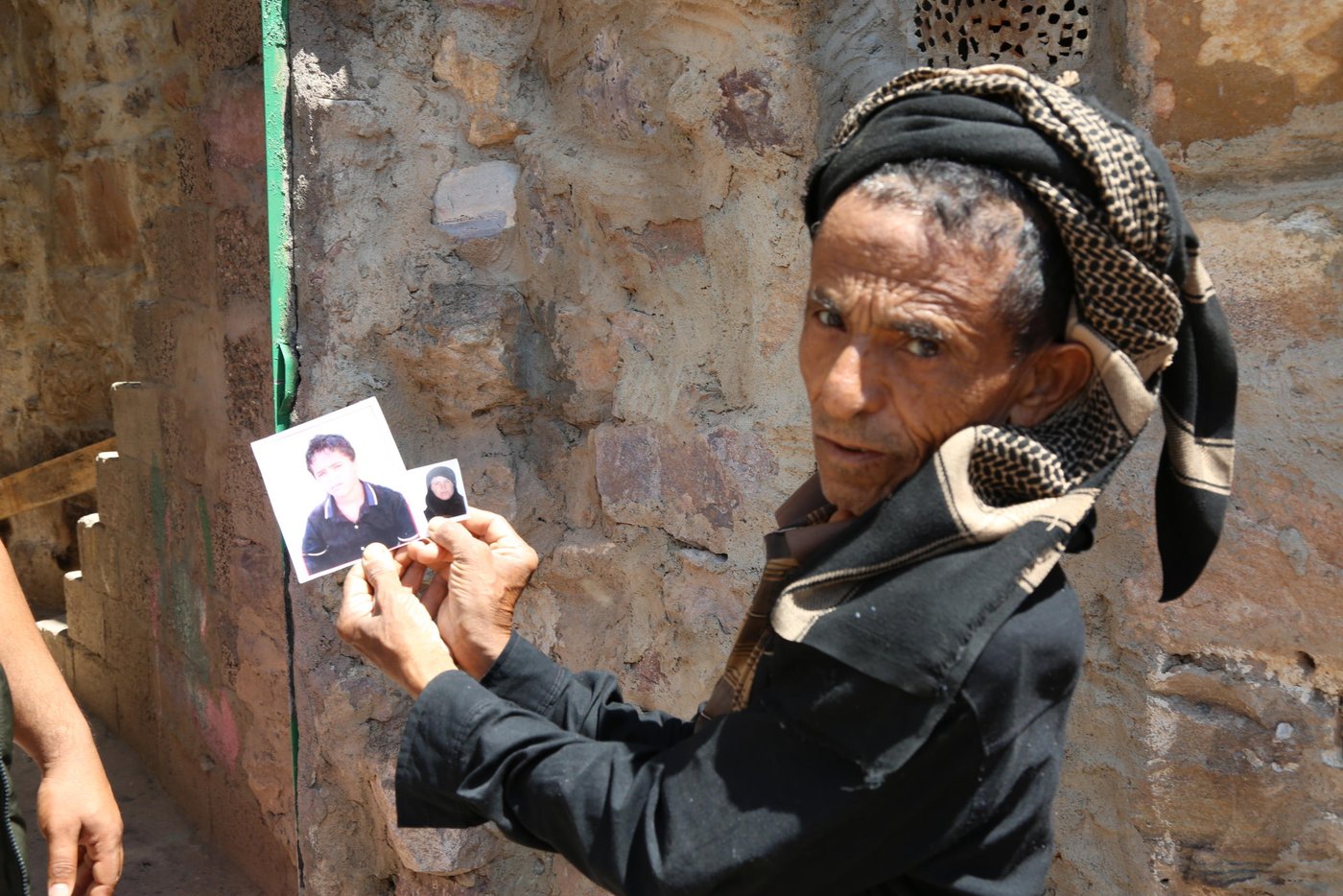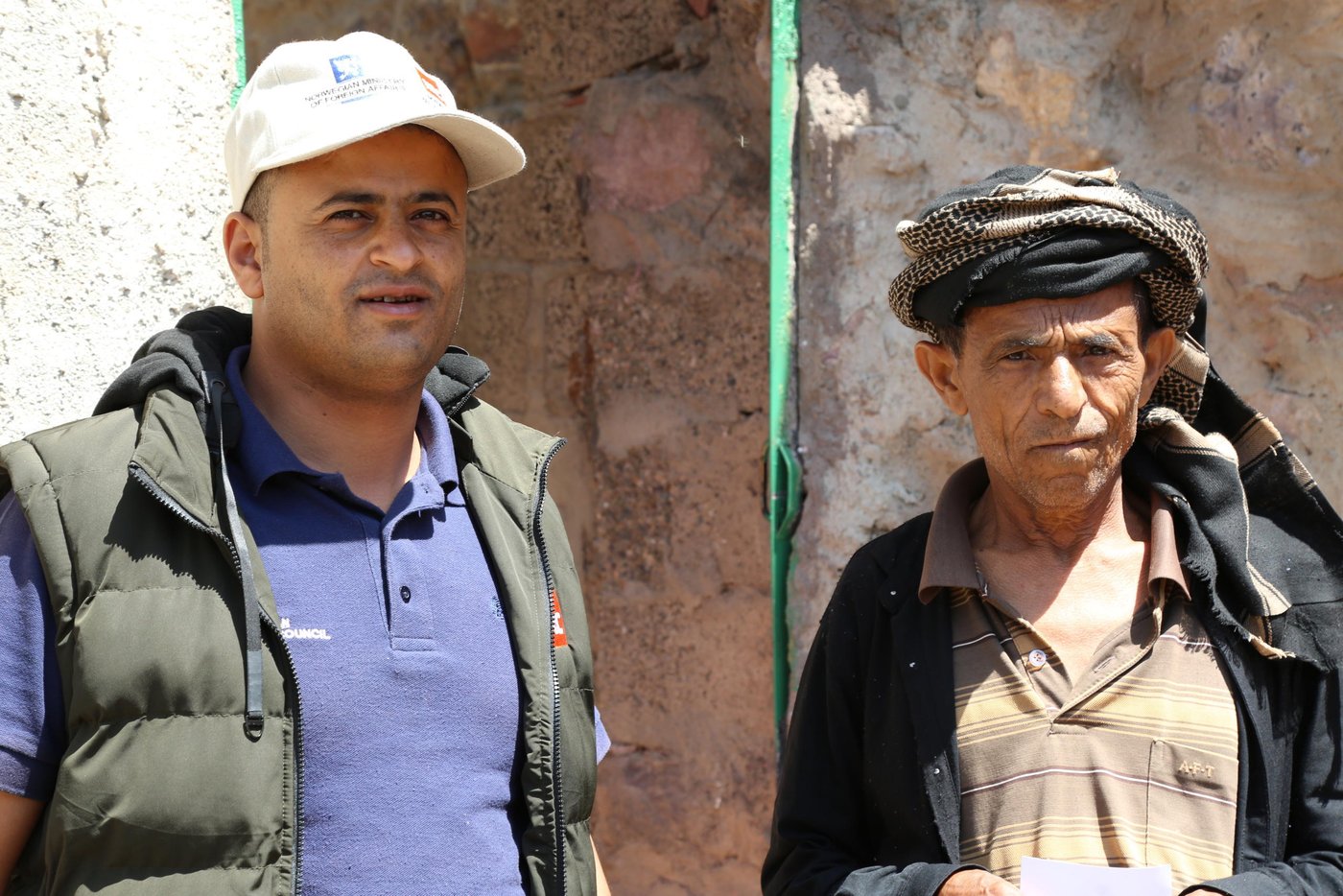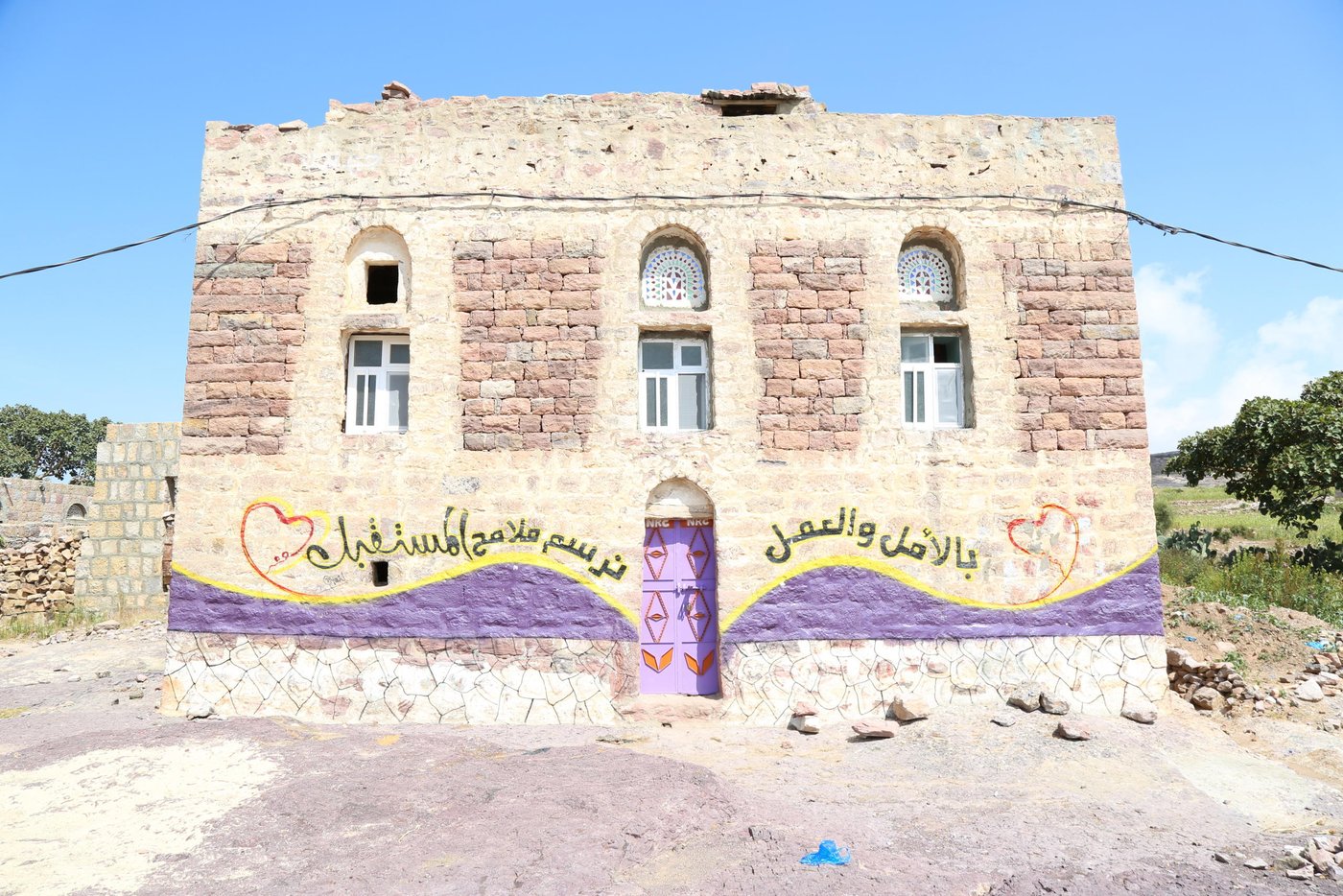Ghaleb Mohammed Al-Faqeeh, in his late 50s, is a father of 10. He used to work as a farmer in his village south of Taiz city. He owned a car and a motorcycle which he used to transport goods from the city to residents in his village to earn a little extra income. But he lost everything when the war reached his village.
“I didn’t flee my house when the battles arrived but some fighters threatened to kill me and blow up my house if I didn’t leave so my family fled the village and left everything behind,” Ghaleb says.
He fled to Al-Qabilah village and there he worked in a bakery. He was just about able to make ends meet but could not afford furniture and many other things for his displaced family. “My wife tried to return to our village to bring back some belongings, but a sniper shot her in the leg and injured her before she could get to the house,” Ghaleb recalls.
All hopes dashed
“She tried to go back a second time with our son but as they entered the village they stepped on a landmine. It exploded and killed them both.”
Ghaleb collected the bodies of his wife and son and buried them. He suffered from a lot of regret and guilt for letting his wife and son return to the village.
“All my hopes were dashed after the death of my wife and son,” Ghaleb says.

Repairing the damage
When the fighting in Ghaleb’s village ended, he was not able to return to his house as the roof, windows and the door were damaged. He couldn’t afford to pay for the rehabilitation of his home.
“I didn’t have money to fix my house but when I heard that NRC was helping people who were returning to the village to rehabilitate their houses, I went back to my village without my children to repair my home. I started by fixing up one room which I stayed in while the rest of the house was being repaired.”
Reuniting in the family home
NRC, with the support of the Yemen Humanitarian Fund (YHF), provided 150 families in Al-Silw district with USD 2,300 and a further 171 families with USD 575 to rehabilitate their damaged houses. Cash assistance enabled the families to take ownership of the repairs.
“NRC provided us with enough money to buy windows, wood, cement and other materials needed to make the house livable again and I did the repairs myself,” Ghaleb says.
“If it wasn’t for NRC, I wouldn’t have been able to even afford one window. The house is almost ready now, and soon my children will return and we will be reunited as a family in our home.”

Returning home
When we visited the area, it was almost empty of people. Most residents did not have any savings and sold most of their possessions to pay for their life in displacement.
Residents started returning to their houses when they became aware that we were supporting people to repair their homes.
A home provides a sense of belonging, safety and comfort. Now Ghaleb’s family has returned they can begin rebuilding their lives and look towards the future.
The displacement situation
The war in Yemen has forcibly displaced 3.65 million people inside the country according to the International Organisation for Migration (IOM). This includes close to 400,000 people newly displaced in 2019.
In addition, 1.28 million have returned to their homes or their areas of origin. This includes 150,000 people in Taiz Governorate where Ghaleb is from. Those who have returned report their key need is food and financial support, as well as well as access to income and shelter.
The reasons for people returning varies. Some have returned as they feel the security situation has improved in their hometowns and they want to go back to reclaim their homes and livelihoods. Others have been pushed into returning because of the terrible living conditions in their areas of displacement. Another reason is no longer being able afford to pay rental costs. Some people have considered returning to their homes but have found the security situation worse than they expected. Others have returned and tried to re-establish their lives only to find themselves displaced again.
The conflict in Yemen has seen the breakdown of public services including health and education, and the economy is close to collapsing. Many of the displaced people that NRC has spoken to say that they would like to return home but need certain conditions to be in place to be able to do so. These conditions include an end to the war and a guarantee that they will be safe, support to rehabilitate their homes, access to health, education, basic services and employment.


